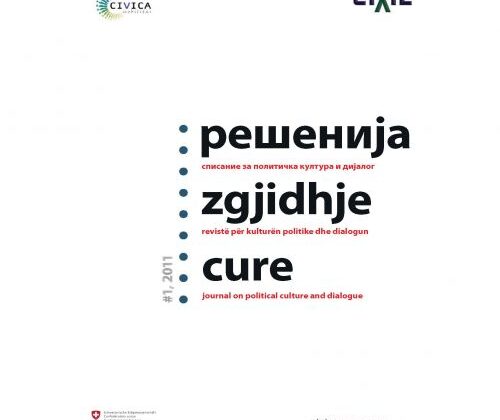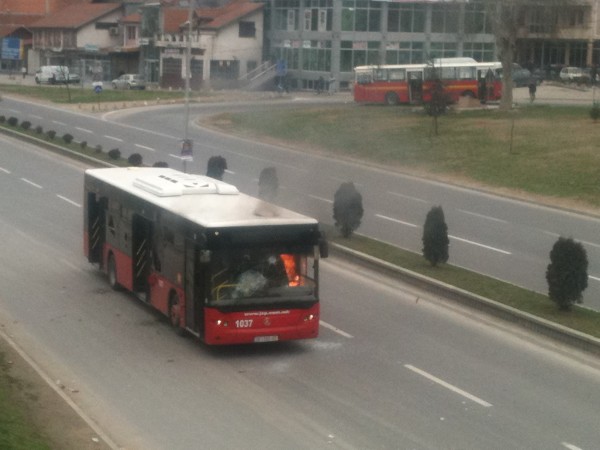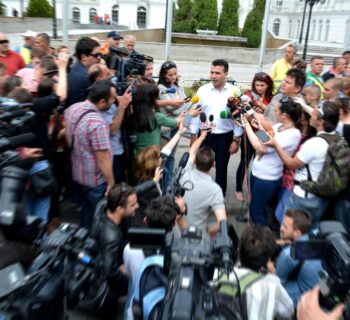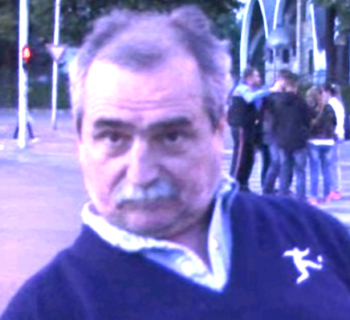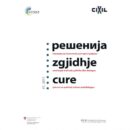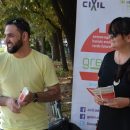Introductory speech at the Conference on political culture and dialogue “Democratic Perspectives” in Skopje, March 1, 2013
Civil - Center for Freedom from this very place, at the beginning of the second National Conference on Political Culture and Dialogue, on March 29, 2011, called for a dialogue and start of a broad political reconciliation in the country. That appeal was sent to all political parties based on the conclusion that political dialogue does not exist and that the country heads towards political crisis.
Unfortunately, we were in a situation to appeal many more times with the same demand; and those appeals were based on the knowledge we got from our fieldwork and communication with a large number of citizens of the Republic of Macedonia. Wherever we appear as an organization, in formal and informal communication and cooperation, we hear from citizens of Macedonia, regardless of their political orientation or background that the political divisions and tensions are unbearable and they have to end.
Macedonia has long suffered from political turbulence which is a consequence from the high political tensions between the ruling and the opposition political parties and from the absence of policies on human rights and freedoms.
The political opponent, instead of being an interlocutor, became a fierce and implacable enemy, more than ever before.
Such relationships in the Macedonian politics culminated on the occasion of the well-known events of December 24 and all that followed thereafter.
Our stands were stated publicly on a number of cases in the past: Macedonia has seen a serious erosion of democracy and the rule of law, violation of human rights and freedoms, whilst discrimination on various grounds became a commonplace.
Therefore, all political actors in the country must urgently turn to the interests of all citizens of the country and to demonstrate maturity in these difficult times.
That, among other things, is the message of Civil within the Free and non-violent elections 2013 campaign:
"It is high time for political reconciliation! It is not for you. It works for us, citizens! "
The contribution of civil society
Civil is firmly convinced that it is the civil society that can contribute to improvement of the situation in the country. This is a time when civil society has a unique opportunity to assume its role by definition, and that is to be the voice of the citizens. No time to measure words, action is needed and sincere involvement of every well-intentioned person in favor of overcoming this crisis. Expression of one’s opinion must not be a subject to labeling and discrimination. It is a human right guaranteed by law and constitution.
Civil and the partner organizations Forum Civil Peace Service, Institute for Community Development Community Development Tetovo, Center for community development Kichevo and Local Community Development Foundation Stip, as well as many others, and with financial support from the Swiss Agency for Development and Cooperation, conducted numerous activities within the Free and Nonviolent Elections project starting from December 17, 2012.
Our activities have included political parties, local authorities, and civil society organizations, representatives of local governments, media, community leaders and many citizens. Our Prevention Working Groups are deployed throughout the country for weeks now, to observe the political situation at local level.
Briefly, the general conclusion is that we are in the midst of a troubled electoral process, whilst values that are widespread are not in favor of a democratic, multicultural and free society.
Pressures, threats, corruption and blackmail follow citizens of the Republic of Macedonia at every step, at their jobs, in the public space, in the process of education, in communication with institutions, and even in their private lives.
The media in the context of the political situation
Within this project, Civil also started to fully and daily monitor all printed media, but it also monitors the electronic and Internet media. From the monitoring so far several conclusions could be drawn. In some of the media there is an evident positive relation towards one side and an extremely negative relation towards the other side, which also results in total negligence of the professional standards and ethics.
Furthermore, in the assessment of the media work, the media monitoring team of Civil also noted that: “The main developments are covered in almost every medium, but in most of the media it is noticeable that they give greater significance to the activities of the authorities, particularly the local ones (known as “ribbon-cutting” and “shovel-throwing”) apparently intended as a positive promotion of the candidates for these elections.” In the final report of the Free and Nonviolent Elections Project, Civil will also publish a detailed analysis of each of the monitored media in the course of the overall election process.
Interethnic relations – victim of the political crisis
The interethnic relations have seriously been damaged for years. The problems arising from the inefficient policies and dissatisfaction with the situation are usually distracted by instigating hatred and tensions mainly between the two largest communities in the country, the Macedonians and Albanians. Consequently, the discrimination and violation of the human and minority rights have escalated on an institutional level, reflecting the determinations of the political elites, instilling prejudices and hatred on an ethnic basis.
In this political atmosphere, we could also expect an additional deterioration of the interethnic relations at a moment when all even the most absurd justifications for this crisis will be used.
The accusation of political opponents for treason became an ordinary manner of communication of the political elites, within the same ethnic political block, whereas the nationalist rhetoric is the core of political behaviour between the political representatives of different ethnic communities. One extreme feeds the other.
The international community is more interested for overcoming the crisis than the domestic stakeholders
For a longer period of time, and especially after the well known events of 24 December, the international community send clear signals that it is not indifferent to the developments in the country.
The messages, during the two-month period are clear – the European prospects of Macedonia have been endangered by the lack of internal dialogue and lack of readiness to find a solution to the problems. Macedonia has been an unpleasant surprise. The responsibility about the crisis is ping-ponged from one to the other side, without any logic and out of the institutions.
The pressure of the international community in the last few days over our political elites for the benefit of our citizens is a good illustration of the dialogue level, that is, the level of political culture in the country. It is not a pleasant feeling to see the domestic politicians acting irresponsibly, whereas the foreign diplomats propose solutions that are simple, only if there is a little virtue and wisdom. In other words, the people feel again and again betrayed when they see how the foreign diplomats show greater concern about us than our leaders.
The way out of the political crisis is in the dialogue
The political parties bear most of the responsibility when it comes to the roots and reasons for the current political crisis in the country.
On the other hand, the Government has all instruments to enable the conditions for initiating the political dialogue that has been lifeless for quite some time now. It is high time to use these instruments.
The declarative calls for dialogue coming from whichever side of the political barricades must be deprived of qualifications and efforts to gain additional political points.
The dialogue must be set on fair basis, with a maximum manifestation of political will for strengthening the democratic institutions, rule of law and consistent observance of the human rights and freedoms.
Therefore, the political parties in the Republic of Macedonia must initiate a mutual conversation. The politicians must compose an urgent agenda with which they will heal the Macedonian society. The sooner, the better. The only way out of the crisis is in the dialogue. A continuous and constructive dialogue in which the political opponent is not a mortal enemy but a potential partner.
That must be done now. For the good of all citizens of the Republic of Macedonia.
Xhabir Deralla
This post is also available in: AlbanianMacedonian
 Македонски
Македонски Shqip
Shqip English
English
